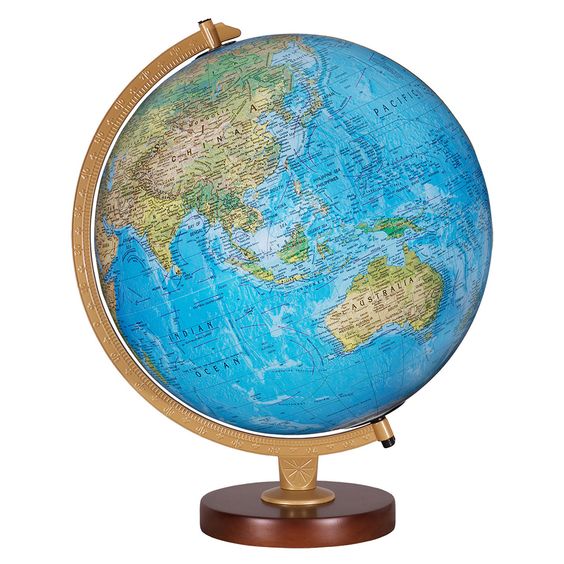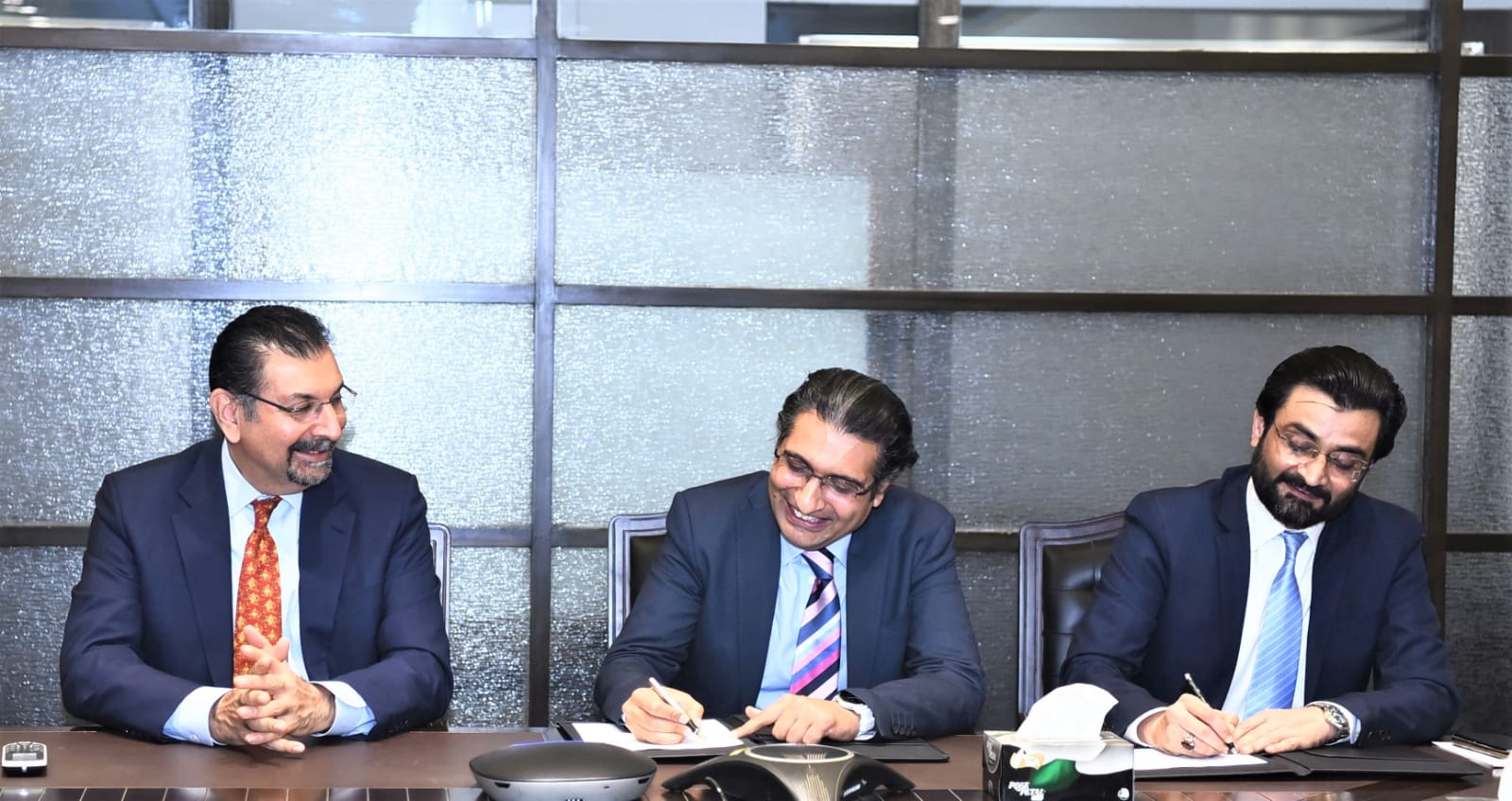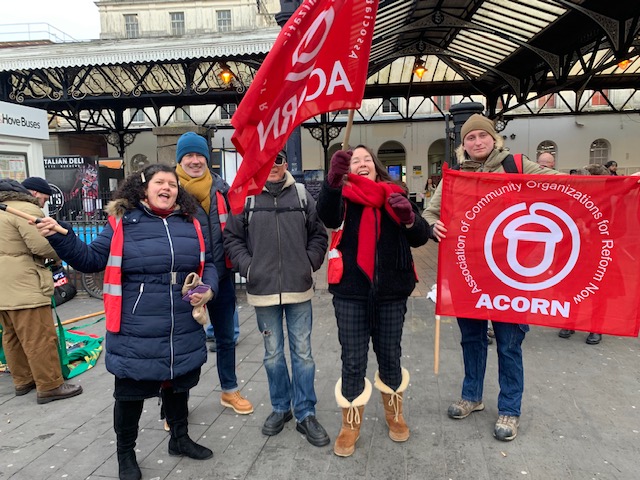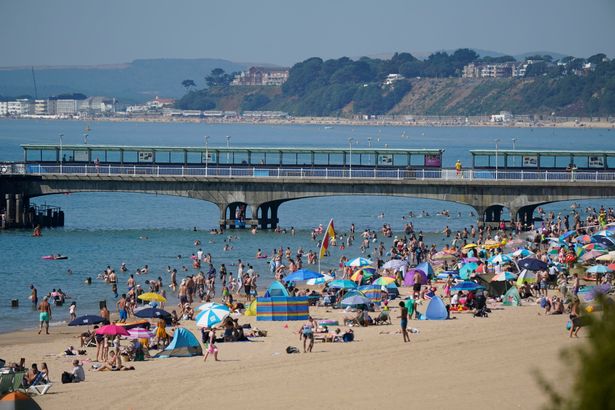The post Property of former Uzbek President’s daughter confiscated in UK first appeared on Sindh Courier.
]]>Tashkent
The authorities in the United Kingdom have confiscated two apartments and a mansion that belonged to the daughter of Uzbekistan’s first president, Gulnara Karimova. The real estate is valued at over $25 million, Podrobno.uz reports.
The Serious Fraud Office (SFO), responsible for combating serious fraud, stated that it had confiscated three luxury properties in the UK owned by Gulnara Karimova.
“We have uncovered a complex financial scheme involving multiple offshore accounts and companies to seize the assets. This decision is a step forward in our case and our ongoing efforts to eradicate dirty money in the UK,” noted SFO Director Lisa Osofsky.
According to British law enforcement, Gulnara Karimova and her family acquired this real estate using proceeds from corrupt activities in Uzbekistan.
The SFO also alleges that Karimova received hundreds of millions of dollars in bribes from telecommunications companies between 2004 and 2012 in exchange for assisting them in gaining access to the Uzbek market.
According to the Prosecutor General’s Office of Uzbekistan, Gulnara Karimova’s assets abroad are estimated at more than $1 billion. She also controls 30 accounts in 7 Swiss banks and 8 safes, all located in Lombard Odier bank.
_______________
Courtesy: Central Asian Light (Posted on Aug 9, 2023)
The post Property of former Uzbek President’s daughter confiscated in UK first appeared on Sindh Courier.
]]>The post Observations of an Expat: The Big Lie is finally in Court first appeared on Sindh Courier.
]]>By Tom Arms
Donald Trump will get his wish. He desperately tried to air his election fraud claim in court. He made over 50 attempts to do so, including two to bring it before the Supreme Court.
But Trump’s problem is that the wrong person – or entity– is charged with lying. It is not the swamp, deep state, establishment elite or the blob that is being hauled before the court accused of porky pies in pursuit of naked power. It is Donald Trump.
The cornerstone of the case of Special Counsel Jack Smith and the Department of Justice is that Donald Trump lied when he claimed electoral fraud. That he—and his co-conspirators– knew that he lied and that he used the lie in the criminal pursuit of subverting the US constitution, the electoral laws and the proceedings of Congress.
If he didn’t lie. If Donald Trump is indeed the victim of an elaborate conspiracy involving the Department of Justice, his own Vice President, over 50 courts and tens of thousands of individual vote tellers, then Jack Smith’s case collapses into an ignominious legal heap.
Trump’s lawyers hope they have a constitutional ace up their sleeves–the right to free speech as enshrined in the First Amendment. Freedom of speech protects the right to lie—up to a point.
Bill Barr, Trump’s Attorney General, was prominent among those insisting that the ex-president accept the election results and attacked him for not doing so. This week, the country’s former top lawyer, dismissed the First Amendment defense. He said: “They (the Department of Justice) are not attacking his First Amendment rights. He can say whatever he wants. He can even tell people that the election was stolen when he knew better. But that does not protect you from entering into a conspiracy to defraud the United States.”
It is the conspiracy angle that Jack Smith is focused on. And key to conspiracy argument is Trump’s unsuccessful efforts to persuade Vice President Mike Pence to throw out the Electoral College votes at the ceremonial vote count on January 6. Pence said this week that he had “done his duty” by not bowing to Trump’s demands. The former Vice President is mentioned 100 times in the 46-page indictment.
Trump’s lawyers may also use the presidential immunity clause. He was president when he attempted to compel Pence to overturn the vote and when he urged the crowd to “march on the Capitol.” But after January 20, 2021 he was an ex-president who for the next 17 months tried to persuade states to de-certify the results.
A major player in this process was his lawyer John Eastman who is named as a co-conspirator but so far is un-indicted (other named co-conspirators include Rudy Giuliani, Sidney Powell and Jeffrey Clark). It was Eastman who came up with the plan for Pence to de-certify the Electoral College vote. He has been described as “the serpent in the ear of the president.”
Oddly enough, the bad advice that Eastman gave Trump could save the former president. Under the terms of attorney-client privilege, the client (in this case Donald Trump) can pass liability for a crime to the lawyer who wrongly advised them. Say some.
The Supreme Court case Clark v. the United States has ruled otherwise. The Justices wrote: “A client who consults an attorney for advice that will serve him in the commission of a fraud will have no help from the law. He must let the truth be told.”
Odds are that the Supreme Court will have the opportunity to rule again on the limitations of attorney-client privilege, presidential immunity and free speech. If Trump loses in the lower courts he will appeal and appeal all the way to the top of the legal tree.
America’s wheels of justice grind exceedingly slowly. Therefore it is unlikely there will be a legal result before the 2024 election. America’s voters must assume the role of their country’s jurors.
 World Review
World Review
The Ukraine war has resulted in the world facing a shortage of every grain product and the prospect of widespread starvation in the developing world and spiraling food prices in the developed.
Shortages of corn and wheat—Ukraine and Russia’s two biggest grain exports—have increased demand for that other major grain product—rice. This has led India to ban exports of non-basmati rice “to ensure adequate domestic availability at reasonable prices.” India exports 40 percent of the world’s rice.
To compound the problem other major rice producing countries—Thailand, Pakistan and Vietnam—have all suffered bad harvests this year due to deteriorating weather conditions.
But back to Ukraine where Vladimir Putin has ended the Turkish-brokered deal to allow grain ships past the Russian blockade of Ukraine’s Black Sea ports. He followed that up with a devastating drone attack on Izmail which handles about a quarter of Ukraine’s grain exports. An estimated 40,000 metric tons of grain bound for Africa, China and Israel was destroyed and the port has been closed indefinitely. Since withdrawing from the grain deal on 27 July, Russia has destroyed an estimated 200,000 metric tons of grain as well as civilian ships, port facilities and grain storage siloes.
It should also be noted that Ukraine’s Izmail is at the mouth of the Danube and on the opposite bank is NATO member Romania.
***
Vladimir Putin has weaponised food. He has created a worldwide shortage and is now using access to Russian-produced grain to blackmail/bribe selected countries.
This was obvious at the recent Russia-Africa Summit in St Petersburg where he promised free grain to carefully selected African countries. Burkina Faso, Zimbabwe, Mali, Eritrea and the Central African Republic have all been rewarded for their support at the UN and links with the Wagner Group.
The summit, however, was not the big success Putin hoped for. The last such gathering was in 2019 when 45 African leaders turned up in Sochi. This time only 27 made the trip north to Russia’s Baltic port.
The drop in numbers was largely due to Putin’s failure to deliver on his promises. In 2019 Russia promised to quadruple direct investment in Africa. But since then it has dropped by two thirds and now represents only one percent of the total inflow of Sub-Saharan Africa’s capital investment.
Weapons and the ruthless expertise of the Wagner Group are now Russia’s chief contributions to Africa. Dictators in a swathe that follows the 10th Parallel across the Sahel from Sudan on the Red Sea to Guinea Bissau on the Atlantic are being propped up by the Wagner Group.
Yevgeny Prigozhin—head of the Wagner Group—led an armed mutiny against Russian defense chiefs last month. Putin branded him a “back-stabbing traitor.” But the Wagner chief appears to have been quickly rehabilitated as he was photographed in St Petersburg glad-handing African leaders. Putin may have decided to remove his troublesome “chef” from the domestic scene by further delegating to him Russian activities in Africa.
***
Niger appears to be the latest target of Russia’s Wagner Group. Prigozhin has welcomed the overthrow of democratically elected President Mohamed Bazoun by General Abdourahamannane Tchiani and offered Tchiani and his military junta Wagner support.
This is a major blow to the West on several fronts. For a start, Niger is a major producer of uranium ore which is needed to fuel nuclear reactors. France, in particular is heavily dependent on Nigerien uranium as nuclear power accounts for 62.7 percent of French electricity production.
The French have 1,500 troops in Niger based mainly at their airfield outside the capital Niamey. America has another 1,000 troops in Niger and neighboring Chad. Their presence is seen as vital in the battle against Jihadists in the Sahel and West Africa and the support of democratic interests. Niger and President Bazoun are seen as important bulwarks in both areas.
As of this writing, President Bazoun and his family are being held captive in the presidential palace. On Thursday the Washington Post published an article by him in which called for American support to overturn the coup and warned that the coup would lead to a strong Russian influence in Niger.
The US, EU, UK, France, and OAU have all condemned the coup and cut off aid and investment. They have also evacuated citizens. The French, American, Nigerian and Togolese ambassadors have been ordered out of the country by the new military government. The junta has also cancelled a series of military agreements with France and welcomed the involvement of Prigozhin’s Wager mercenaries.
President Emmanuel Macron has warned General Tchiani “should anyone attack French nationals, diplomats, military and/or French interests, they will see France respond in an immediate and intractable manner.”
Ideally an intervention to reverse the coup will come from African countries. The Economic Community of West Africa States (ECOWAS) is considering just that. It has warned that the 15-member state could “as a last resort” intervene with its military arm, The Economic Community of West African States Monitoring Group (ECOMOG).
Since it was formed in 1990, ECOMOG has successfully intervened in West African states to overturn coups. Countries affected are Liberia (twice), Mali, Sierra Leone, Guinea Bissau and Gambia. The problem is that some of the ECOWAS membership—especially Guinea Bissau and Mali—support the coup leaders. They in turn are supported by the Wagner Group.
War, poverty and climate change are creating the conditions for coups in African countries such as Niger. In the past four years the number of people in Sub-Saharan African living in extreme poverty (defined as having an income of $2.25 a day or less) has increased from 150,000 to 420,000.
Britain has not helped matters. A Foreign Office report this week revealed that the conservative government’s cut in foreign aid from .07 percent of GDP to .05 percent is resulting in thousands of deaths in Africa and the Middle East.
The UK was never the world’s biggest aid donor. That title belonged to America. But it was the third largest and the Department for International Development (now subsumed into the Foreign Office) was highly respected around the world for its carefully-targeted value for money assistance.
One of the ancillary purposes of aid is to improve conditions in the developing world that encourage people to remain in those countries rather than risk their lives crossing the English Channel in small boats.
Ironically, the British government is taking money out of the already reduced aid budget to pay for the housing of refugees. Many of them come from countries which have suffered British aid cuts.
________________
 Tom Arms is foreign editor of Liberal Democrat Voice, author of “America Made in Britain,” “The Encyclopedia of the Cold War” and co-host of the weekly world affairs podcast “TransAtlatic Riff” which can be heard by clicking here:
Tom Arms is foreign editor of Liberal Democrat Voice, author of “America Made in Britain,” “The Encyclopedia of the Cold War” and co-host of the weekly world affairs podcast “TransAtlatic Riff” which can be heard by clicking here:
https://open.spotify.com/show/3ntjretAKNLZNFpA5ZEGDG
The post Observations of an Expat: The Big Lie is finally in Court first appeared on Sindh Courier.
]]>The post Jamaica Aims to Gain Independence from the British Monarchy first appeared on Sindh Courier.
]]>Monitoring Desk
The Jamaican government intends to hold a self-determination referendum in 2024 to become independent of the British monarchy and have its own head of state.
“The time has come. Jamaica is in Jamaica’s hands. We have to do it, especially with the transition in the monarchy. My government says we have to do it now,” Jamaican Minister of Legal and Constitutional Affairs, Marlene Malahoo Forte, told the media.
“While the United Kingdom celebrates the coronation of the king that is for the United Kingdom,” Malahoo Forte said. The coronation of King Charles III will be held on May 6 in London.
https://twitter.com/RT_com/status/1654284775207895041?ref_src=twsrc%5Etfw%7Ctwcamp%5Etweetembed%7Ctwterm%5E1654284775207895041%7Ctwgr%5Eeeffe1454afeb4df15d52be020b34c175f4b5a66%7Ctwcon%5Es1_&ref_url=https%3A%2F%2Fwww.telesurenglish.net%2Fnews%2FJamaica-Aims-to-Gain-Independence-From-the-British-Monarchy-20230505-0019.html
According to the minister, Jamaica intends to draft a new constitution and hold an urgent referendum on self-determination as soon as possible, in 2024. In this way, it seeks to become fully independent of the United Kingdom and thus have its own head of state.
Malahoo Forte stated that the monarchy and the racist policies of the British government foster republican sentiment in the Caribbean country.
She added that this sentiment is motivated by the UK’s painful colonialist and slave-owning past, for which London has never apologized or offered reparations or apologies.
The death of Elizabeth II and the succession of Charles III has prompted calls from Caribbean countries to remove the monarch as head of state.
The Caribbean island gained independence from the United Kingdom in 1962; however, it retains the British king as head of state and remains among the Commonwealth countries.
________________
Courtesy: TeleSur (Posted on May 5, 2023)
The post Jamaica Aims to Gain Independence from the British Monarchy first appeared on Sindh Courier.
]]>The post MoU signed for training of Pakistan’s capital market human resource first appeared on Sindh Courier.
]]>Karachi, Sindh
Pakistan Stock Exchange (PSX) and Institute of Financial Markets of Pakistan (IFMP) signed a Memorandum of Understanding (MoU) on Thursday with Chartered Institute for Securities & Investment (CISI) UK, marking a landmark agreement amongst the three organizations for the development of capital market’s human resource.
PSX and IFMP, under the guidance of Securities and Exchange Commission of Pakistan (SECP), initiated this effort which focuses on training and upgrading the skill-sets of the human resources engaged in the capital markets that will enable market intermediaries to provide enhanced quality of services to their clients and augment investor confidence. CISI is a globally recognized not-for-profit organization and a professional body for financial services practitioners within the securities and investment industry. IFMP is Pakistan’s first securities market institute, which has been established as a permanent platform to develop quality human capital, capable to meet the emerging professional knowledge needs of financial markets and create standards among market professionals.
 Speaking at the signing ceremony, the MD and CEO of PSX, Mr. Farrukh Khan, stated: “I congratulate the PSX and IFMP teams for initiating and formalizing this extremely useful MoU between PSX, IFMP and CISI. The MoU lays down a framework of objectives among the three organizations with the shared vision to build capacity, skills, and integrity in Pakistan’s capital markets”.
Speaking at the signing ceremony, the MD and CEO of PSX, Mr. Farrukh Khan, stated: “I congratulate the PSX and IFMP teams for initiating and formalizing this extremely useful MoU between PSX, IFMP and CISI. The MoU lays down a framework of objectives among the three organizations with the shared vision to build capacity, skills, and integrity in Pakistan’s capital markets”.
He further stated, “Bringing together both the parties to the agreement, CISI and IFMP, and introducing the widely recognized qualifications awarded, by both the organizations, such as Certificate in Securities (Pakistan) and International Certificate in Wealth & Investment Management (Pakistan), will not only benefit the sales persons, traders and investors but also the capital market as a whole. This shows PSX’s commitment to its role of being a frontline regulator that is progressive and which aims to continuously improve market participant experience across all asset classes and offerings available at PSX.”
Khan further extended his gratitude to the SECP team for their continuous guidance and support for such initiatives to enhance credibility of capital markets of Pakistan.
Mr. Kevin Moore Chartered FSCI, Director of Global Business Development, CISI said, “This is a shared vision from the PSX, IFMP and the CISI aiming to build capacity, skills and integrity in the Pakistan financial markets and bring confidence to foreign investors. CISI’s technical qualifications are portable and offer individuals an opportunity to achieve a global qualification combined with local applicability through IFMP. It is a true collaboration with CISI and IFMP putting forward one examination that will form a key component for the new certifications. I am delighted to partner with the PSX and IFMP and demonstrate the CISI’s commitment and support to aspiring practitioners in all markets.”
Present at the ceremony were Ms. Asma Hamid, Chairperson IFMP; Mobashar Sadik, CEO IFMP; Jawad Hashmi, General Manager PSX & Board Member IFMP; Bilal Zardi, Secretary General, Pakistan Stock Brokers Association, senior officials from CISI UK & Pakistan, as well as senior officials of SECP. (PR)
_____________
The post MoU signed for training of Pakistan’s capital market human resource first appeared on Sindh Courier.
]]>The post The Origins and Essence of West European Imperialistic Colonization first appeared on Sindh Courier.
]]>By Dr VladislavB Sotirovic
Imperialism and colonialism
One of the focal historical features of the western (West European) civilization was and is imperialistic colonization followed by the brutal social, economic, political, financial, etc. exploitation of the local peoples and their cultures.
By some academic understanding and formal definition, imperialism is a process of extending a nation-state’s power by territorial occupation or by forming political, financial, economic, etc., hegemony (rule) over other people. In more simple words, imperialism is defined as the cases when one state (nation-state) controls the inhabitants and territory of another state (neighboring or overseas). In any case, the cardinal feature of imperialism is domination or control by one country or group of people over others. The others will point out that imperialism in a very broad way refers to the creation and maintenance of an unequal economic, cultural, and territorial relationship but usually between states and often in the form of an empire that is founded on domination and subordination.
Colonialism can be defined in a narrower sense as the creation and maintenance of rule, for an extended period of time, by a sovereign power over a subordinate and alien people. Colonization involves the physical settlement of settlers and the displacement of others (indigenous people) followed by the resettlement of places. In a more political sense, colonialism is the policy of a strong power extending its control territorially over a weaker people or nation (state). Colonialism, as a historical phenomenon, takes many different forms and is experienced by different people in different ways. Historical experiences of colonists have been many and varied, as, for instance, the British case illustrates (for example, David Livingstone who spent much of his life as a missionary and explorer in Africa). Historically and originally, the Latin (Roman) “colonia” meant a country estate but it soon acquired the meaning of such an estate deliberately settled among foreigners.
The British colonies had 388,644 million people, and these colonial subjects were subjected to something closer to absolute colonial rule.
As a matter of very historical fact, imperial states (empires) have been rising and falling for different reasons. Concerning the falling, usually because of the foreign (outside) factor. The best examples are Antique Egyptians, Persians, Macedonians/Greeks (of Alexander the Great), Chinese, Romans, Mongols, or Aztecs, and Incas in the Americas who all of them succeeded to create extensive territorial empires and, therefore, dominating their local or overseas regions.
In practice, in many particular cases, such empires have been physically isolated from one another (or from the rest of the world) by some kind of geographical barrier (deserts, oceans, seas, rivers, mountains, etc.).
The start of West European imperialistic colonization
We can say that West European imperialistic colonization started in 1492 by “discovering” the Americas by Genovese Jew Christopher Columbus who, basically, proved that these physical barriers were not so uncrossable. Today, we know that the Europeans discovered the Americas even in the year 1000 (Vikings) but why Ch. Columbus did it for the second time it is another part of the story (pay attention that in the same 1492 year, Spain started ethnic cleansing of the local Jews and Muslims). We read in the official textbooks that the 1492 Columbus voyage was just a result of long-time efforts by West Europeans to control and expand economic ties (trade) with Africa and Asia (pay attention that the Portuguese navigators started occupying West Africa’s seacoast a century ago). Nevertheless, these (Iberian – Portuguese and Spanish) navigation efforts became the focal steps in the direction of West European imperialistic colonization followed by Eurocentric economic and later political globalization of the pre-modern and modern world.
The Europeans have been in the trade relation with Central and East Asia (the Orient) for a long time before 1492. Within those centuries, the economic demand by Europe for primarily spices but for other items as well as from the Orient has been provided by the land passing Central Asia and the Middle East (the Silk Road, etc.), and after that, it was transported via the Mediterranean Sea by the Italians (Venetians and Genovesians) and Dubrovnik (Ragusa) sea-merchants.

However, prompted by the territorial expansion of the state (Empire/Sultanate) of the Ottomans (Osmanli), who occupied long-time trade lines between the Middle East and Central Asia and imposed harsh taxes for the trade products, it was, basically, the Portuguese Prince Henry (the Navigator) who created the center for the overseas navigation with the final purpose to expand Portuguese trade and therefore domination overseas (avoiding Ottoman controlled trade-lines in the Middle East). Nevertheless, the emerging navigation (the sextant) and military technologies (cannons and firearms) provided West Europeans (firstly the Portuguese and Spaniards) superior instruments of conquest and colonization (of West Africa, South-East Asia, and Latin America). In other words, for the very reason to take at least part of the control of the valuable spice trade from the Orient, the Portuguese, and the Spaniards encouraged their sailors (navigators) to use the newest navigation and combat technologies in order to find alternative (out of the Ottoman control) trading lines with Central Asia, India, and China.
In the process of revolutionizing world trade between (West) Europe and (South) Asia, the Portugues explorers Bartholomeu Dias and Vasco da Gama were the first by organizing the successful (West) European overseas expeditions from 1487 to 1498 to round Cape of Good Hope at the southern horn of Africa (today in the Republic of South Africa). In such a way, they, in fact, opened a new trade line between (West) Europe and the Indian sub-continent (South Asia). However, the urgent need for fresh drinking water and food supplies simply led the Portuguese sailors to establish supply stations along firstly the western and later the eastern seacoasts of Africa followed by those in the Indian Ocean and South-East Asia. That was how West European colonial imperialism started.
Nevertheless, colonialism as a historical-political phenomenon can be defined as a policy by which a state-nation maintains or extends its control over foreign territories and people. In essence, there were/are historically two types of the policy of colonialistic imperialism:
Movement of people from the mother country to another one for the reason to create a new type of political order;
External powers’ rule over the authentic people of the land
The Portuguese sailors succeeded to establish trade lines to the south and east. The road to India along the African seacoast was, in fact, discovered by Lisbon. However, Ch. Columbus, a Jewish navigator, and trader from Genoa, had a new idea to reach (according to the mainstream textbooks) Japan or China by sailing west around the world. However, in fact, he knew that between Europe and Asia, it was a land (discovered by the Vikings in 1000) and practically he wanted to reach it probably for the very purpose to resettle the Spanish Jews to the new Israel before the pogroms in Spain started in the same year. For that purpose, he was simply late.
In any case, a very critical approach to the first Columbus trip in 1492 can be that such an overseas voyage (to Japan or China) was practically impossible for the reasonable reason that the ships of the time could not carry enough supplies (food) to sail as far as he hoped to go (except he believed that there was a land between West Europe and Asia-Pacific as, in fact, was – the Americas). In practice, Ch. Columbus did not find an alternative trade line to the Orient (as it is officially believed to be his prime purpose of the trip), he discovered (what, in fact, he wanted) the land between or later known as the Americas – two continents being very rich in many kinds of natural resources and arable land, if not in silk Oriental spices and silk. The next navigators and explorers from Spain and Portugal very quickly used the opportunity to conquer and exploit the New World of the Americas although it did not produce luxury products but at the same time, it offered many practical possibilities for both trade and colonization (grabbing of the land).
The 1494 Treaty of Tordesillias
The first official global division of the world (colonies) happened in 1494 – two years after Ch. Columbus “discovered” New World. In order words, for the reason to avoid political-military conflict between two Catholic states over their competing territorial-imperialistic expansion, under the umbrella of the Vatican (Roman Catholic Pope), Madrid and Lisbon signed the Treaty of Tordesillas (in Spain) which divided the world along an imaginary north-south line some 400 km. west of the Portuguese Azores Islands (a Lisbon possession in the Atlantic Ocean). The treaty was soon followed by the new Treaty of Zaragoza (Spain) in 1529.
According to the treaty, Spain (Castilla and Aragon) was granted territorial possessions to the west of this line, while Portugal gained possessions to the east. In short, the 1494 Treaty of Tordesillias established the authority of the Kingdom of Spain in the New World with the exception of Brazil, which Portuguese sailors discovered on their side from the line in 1500. It has to be noted that the treaty was signed four years before the Portugues navigator Vasco da Gama in 1498 discovered the best use of Atlantic winds on way to Cape of Good Hope (1497−1499) and consequently reached the Indian sub-continent by navigation by local guides. Portugal, in turn, by the treaty obtained colonial power over Africa and the Indian Ocean – a lucrative trade line.
In the beginning, it was thought that Spain by the treaty received less valuable provinces compared to Portugal. However, the huge natural wealth of the (Spanish) New World very soon became obvious and extremely profitable for the Spanish (Habsburg) Crown as the conquest of both Americas Empires of Inca and Aztecs in the first half of the 16th century meant in practice extreme riches for Madrid nevertheless that a huge number of authentic before-1492 Americans disappeared because of harsh subjugation, forced labor, plundering, and epidemic diseases (followed by the forced Christianization of the local Indians). It is a fact that the majority of Spanish conquistadors (conquerors) went about their empire-building with (Roman Catholic) religious zeal and consequently simply did not consider any conflict between their profane and sacred motives for the Spanish imperialistic and colonization policies in the New World.
Very soon after the conquest of the new overseas land, both Portugal and Spain faced the same problem to be quickly solved: the lack of labor force for both their rich (silver/gold) mines (like Potosi in present-day Bolivia) and fertile plantations. The problem was solved by buying millions of African slaves from African and Arab agents and transporting them to both Americas. This practice was later continued by new conquerors of the New World – the Brits, French, Duch, and after 1776 the Americans (of the USA).
New colonial powers
The wealth from the New World (especially gold and silver) financed a big number of Habsburg Spain’s military actions in West Europe making at the same time Spain to be the most powerful state in Europe in the 16th century (at least up to 1588). Nevertheless, the Spanish huge global empire at the end of the same century became overextended and after an unsuccessful attempt to conquer England in 1588, the power of Madrid started rapidly to decline. Now, Holland became a new rising West European imperialistic and colonial power which have been building a trade empire in the next century and succeeded to control over most of the spice-rich East Indies (today Indonesia). Nevertheless, it became obvious as trade and technology have been developing in West Europe, both Portugal nor Holland did not have the population or resources to defend and/or extend their colonial empires. As a result, from the beginning of the 18th century, France and the United Kingdom (as established on January 1st, 1801) emerged as the leading global colonial powers and at the same time focal competitors in the process of building a global empire.
Nevertheless, the United Kingdom (the UK) as an island country was in the position to build its military power around the Royal Navy and, therefore, simply neglect the existence of a large standing army. In addition, the UK was trading for many raw materials (as it was lacking its own) and a very important part of its food. As a consequence, London was gradually increasing its policy of expanding and protecting trade. However, contrary to the case of the UK, France was, basically, continental power as such having vulnerable borders, especially in the west but having geopolitical designs to expand its state territory in Europe. For those reasons, Paris was forced to keep a huge standing army and finance it. It became clear that the French navy was never able to overcome the navy of the UK. Another difference between these two countries as global colonial powers was that France was self-sufficient in food which simply meant that France was consistently more inward-looking at least in economic matters. At the same time, however, the population pressure in the UK encouraged and even forced emigration to overseas colonies, especially to North America (today the USA and Canada). As a result, the combination of these factors created a consistent advantage for the UK over France during the process of their imperialistic competition for overseas colonies, which, in fact, became a driving force in global politics and international relations of the time.
The economy as a driving force of modern form of imperialistic colonization
At least from the mid-17th century, it was the economic condition of affairs that forms the driving force of West European imperialistic colonization. If the consuming public in West European countries raised its standard of goods consumption to keep pace with every rise of productive powers, there could be no excess of goods or capital clamorous to use imperialistic colonization and exploitation in order to find markets. West European capitalists have been investing in what is today known as Third World countries (former West European colonies) and imperialism became a direct result of such policy. According to John Hobson (1858−1940), the modern form of economic imperialism is, in fact, the endeavor of the great controllers of the industry for the purpose to broaden the channel for the flow of their surplus wealth by seeking foreign markets and foreign investments to take off the goods and capital they cannot sell or use at home.
Epilogue
West European colonial empires reached their peak just before WWI started. The UK among all of them was the largest global imperial power having colonial possessions from Canada to Australia, with France in the second place mainly having colonies in Africa. The British colonies had 388,644 million people, and these colonial subjects were subjected to something closer to absolute colonial rule.
______________________
Dr. Vladislav B. Sotirovic, Ex-University Professor, Research Fellow at Centre for Geostrategic Studies,Belgrade, Serbia, www.geostrategy.rs, vsotirovic@yahoo.com
Received through email on Google Group
The post The Origins and Essence of West European Imperialistic Colonization first appeared on Sindh Courier.
]]>The post Over 40000 UK Rail Workers Observe Strike first appeared on Sindh Courier.
]]>London
On Tuesday, the Rail, Maritime and Transport Union (RMT) called over 40,000 workers for a four-day strike that will paralyze the United Kingdom until Saturday.
The massive strike occurs after the failure of negotiations with the railway company Network Rail, which did not want to carry out a 7 percent increase in wages as requested by workers in a country whose inflation has already exceeded 11 percent.
RMT Secretary Mick Lynch explained that the Conservative government’s latest wage increase offer is “totally unacceptable” to workers because it is “well below” the inflation.
He also denounced that the British government is “deliberately obstructing” the agreement between the workers and the company.
 “There is an opportunity to find solutions, but I fear the government is preventing that from happening. They are deliberately obstructing that deal,” Lynch said.
“There is an opportunity to find solutions, but I fear the government is preventing that from happening. They are deliberately obstructing that deal,” Lynch said.
“The government wants the strikes to continue because they need what we call a cuckoo, someone to distract from the problems and from their own incompetence,” he added, recalling that social discontent with conservative policies has increased strikes over the last year.
The latest protests have been led by health workers, doctors, ambulance drivers, postal workers, and teachers. This week, nurses, highway maintenance workers and baggage handlers at London’s Heathrow airport will also go on strike.
_________________
Courtesy: TeleSur (Published on Dec 13, 2022)
The post Over 40000 UK Rail Workers Observe Strike first appeared on Sindh Courier.
]]>The post UK researchers are on strike first appeared on Sindh Courier.
]]>Miryam Naddaf
More than 70,000 academics and staff members at 150 UK universities began the largest strike in the history of higher education on 24 November, in protest against poor pay, unsustainable working conditions and pension cuts. Among them are researchers who tell Nature that poor working conditions are eroding the future of UK science.
The industrial action comes after members of the University and College Union (UCU) voted in favor of the strikes in two national ballots last month. Since 2018, UCU members have gone on strike repeatedly to call for the reversal of pension’s cuts, and for better pay, more acceptable working hours and job security.
This time, strikers’ frustration centers on the 3% pay increase offered by universities for the 2022–23 academic year, amid a cost-of-living crisis and as inflation passes 11% in the United Kingdom. Staff also say that their workloads are dangerously high. UCU says that on average, university staff work two extra unpaid days per week, and that one-third of academic staff are on temporary contracts.
In a statement, the Universities and Colleges Employers Association said that the union’s demand for a pay rise of 13.6% is unrealistic and would cost institutions around £1.5 billion (US$1.8 billion).
The strikers also want universities to reverse a cut to pensions that took effect in April, which they say amounts to an average 35% loss in retirement income. The cut was made after a March 2020 evaluation of the Universities Superannuation Scheme (USS) reported that it had a deficit of more than £14 billion. But UCU says the deficit has since been resolved, and that USS’s June financial monitoring report revealed a £1.8-billion surplus. Universities UK, which represents employers involved in USS, says that even with the cuts, the program remains one of the country’s most attractive private pension schemes, and that monitoring reports are not comparable to a full valuation, which is a more comprehensive assessment of the scheme.
Nature spoke to three UK scientists about why they are striking this year.
‘A recipe for bad science’
Helen Coulshed, chemist at King’s College London
While some vice-chancellors earn £500,000 and can claim expenses for all sorts of luxuries, our PhD students and staff are using food banks. They’re deciding which days they can eat, or which meals to skip. That level of discrepancy in one university is not acceptable.
At King’s, we’ve got a 15% gender pay gap, and a 19% ethnicity pay gap. There’s a real lack of commitment to changing that. How can we possibly have the best and brightest in terms of diversity of perspective and equality of access to universities, if we are not paying people the same? It’s a recipe for bad science and lack of innovation. The fact that we can all be on strike together means that it’s harder to ignore.
At King’s, student numbers have increased by 25% over the past two years. At the same time, we’ve had a 3.9% increase in staff. So, our staff-to-student ratio has gone bonkers, which has knock-on effects in terms of availability of our time and headspace to think about research.
What universities are doing is a direct attack on the future of science. Even though it doesn’t feel like it’s direct, it is implicitly going to impact the future of science in the United Kingdom and globally.
‘The whole community is struggling’
Robert Thomas, biologist at Cardiff University
I’ve been involved in strikes since I started as a university lecturer, and this should be concerning to senior management teams, because their behavior continues to stimulate strike action.
My research is primarily fieldwork-based. Excessive workloads have had a massive impact on it. At one point, I was doing twice the university’s maximum teaching allocation. And that translated to about 60 minutes a week for all of my postgraduate supervision, my own research, work publications, reviewing other people’s publications and so on. That’s unacceptable in a modern, research-focused university.
At Cardiff University, we don’t have a functional workload model. So, there are no central data on who is doing what, and this leads to dangerously high workloads that are not officially recorded. This is unsustainable. We’re calling for a dialogue so that we never have to strike again.
 It’s easy to feel isolated when you are working on your own in the lab or in the field and feeling that you are not able to have a proper home life and research life because of the excessive workload. But to take time out during the strike and talk to other people in the same situation brings a powerful realization that we’re not struggling in isolation. We are struggling as a whole community of teachers and researchers.
It’s easy to feel isolated when you are working on your own in the lab or in the field and feeling that you are not able to have a proper home life and research life because of the excessive workload. But to take time out during the strike and talk to other people in the same situation brings a powerful realization that we’re not struggling in isolation. We are struggling as a whole community of teachers and researchers.
‘I’m going to stop peer reviewing for profit-making publishers’
Richard Harris, geographer at the University of Bristol
I don’t often go on strike. But I’m going this time for two reasons. This is the 12th year in a row in which the employers have offered below-inflation pay increases, which means the salary scales are getting less and less each year. They’ve offered a 3% pay increase, but inflation is about 11%. That’s an 8% pay cut in real terms, equivalent to losing one month’s pay.
Added to that is the pension cuts. We’ve had cut after cut after cut, and I don’t think it’s sustainable in terms of science in the United Kingdom, because people will and have already started leaving. Academia is becoming a less attractive job for PhD students.
I’m going to stop peer reviewing for profit-making publishers until the industrial dispute is settled, because it relies on goodwill and very little of it’s actually paid. The wider academic system — and this includes publishing — relies on goodwill and on people doing things that are outside their contracts.
There’s no particular reason why an academic has to peer review a paper for a journal; it’s not in their contract to do so. The reason we do so is because universities are about the exchange of information and knowledge. But when you keep cutting people’s pay and pensions, that goodwill begins to dissipate.
_______________________
Courtesy: Nature (Published on Nov 25, 2022)
The post UK researchers are on strike first appeared on Sindh Courier.
]]>The post How a COVID lockdown changed bird behavior first appeared on Sindh Courier.
]]>Freda Kreier
People weren’t the only ones who changed their ways during the COVID-19 pandemic — birds did, too. Four out of five of the most commonly observed birds in the United Kingdom altered their behaviour during the nation’s first lockdown of 2020, although they did so in different ways depending on the species, according to an analysis.
The study, published in Proceedings of the Royal Society B on 21 September, is one of several that used the disruptions brought about by the pandemic — from a reduction in the number of cars on the roads to the closure of some national parks — to quantify the impact that humanity has on the natural world. Although some research has found that lockdowns had a largely positive effect on wildlife, the latest data from the United Kingdom provide a much more nuanced picture.
“People didn’t disappear during the lockdown,” says co-author Miyako Warrington, a behavioral ecologist at the University of Manitoba in Winnipeg, Canada. “We changed our behavior, and wildlife responded.”
Rare experiment
In the early months of the pandemic, social media was abuzz with reports of wild animals being seen in unusual places. These claims were partially validated when Warrington and her colleagues reported that, in 2020, many bird species in the United States and Canada were spotted moving into spaces usually occupied by people2.
To see how a COVID-19 lockdown affected birds in the United Kingdom, Warrington and her colleagues tallied sightings of the 25 most common birds between March and July 2020 — during the country’s first lockdown — and compared their data set with data from previous years. In total, the study included around 870,000 observations.
The team then compared this information to data showing how people split their time between home, essential shops and parks: three places people in the United Kingdom were allowed to be during the lockdown.
Because people spent more time at home and in parks than before March 2020, the analysis found that 20 of the 25 bird species examined behaved differently during lockdown. Parks — which were flooded with visitors — saw an an uptick in the numbers of corvids and gulls, whereas smaller birds, such as Eurasian blue tits (Cyanistes caeruleus) and house sparrows (Passer domesticus), were spotted less frequently than in previous years. And because people spent more time at home, the number of avian species that visited domestic gardens also dropped, by around one-quarter, compared with previous years.
Other species, including rock pigeons (Columba livia), didn’t react to the lockdown at all. Warrington found this surprising, because pigeons are city dwellers, so she thought they would be affected by the changes in people’s behavior. “But they don’t give a crap about what we do,” she says.
Adapting to change
The birds that altered their habits during the lockdown were probably responding to changes in human behavior, says Warrington. Tits and other birds whose numbers dipped might have fled when people and their pets started spending more time in parks and gardens. The reverse could be true for scavengers, such as gulls and corvids, which might have benefited from park visitors leaving behind rubbish for them to feed on.
When combined with the results of other studies, the behavior of British birds reveals the complex ways in which wildlife was affected by lockdowns and underlines the importance of reducing the disturbance of animals by people, says Raoul Manenti, a conservation zoologist at the University of Milan in Italy.
For Warrington, that means acknowledging that lockdowns were not universally good for wildlife. “Our relationship with nature is complicated,” she says. By developing a better understanding of this relationship, “we know we can affect positive change as long as we do it in a thoughtful manner”.
____________________
Courtesy: Nature (Published on September 28, 2022)
The post How a COVID lockdown changed bird behavior first appeared on Sindh Courier.
]]>The post Worrying male breast cancer signs you could never ignore first appeared on Sindh Courier.
]]>Monitoring Desk
London
About one in 100 (about 1%) of breast cancer cases in the UK are in males, according to Cancer Research UK.
The health charity adds that there are some similarities between male breast cancer and female breast cancer, but that there are also some differences you should be aware of.
Dr. Alexandra Haas, radiation oncologist at the leading cancer treatment facility Proton Therapy Center Prague, said: “Many people think breast cancer is a disease that only affects women, but hundreds of British men receive the devastating diagnosis each year.
“Unfortunately, many men overlook the symptoms and therefore get diagnosed and treated later than female patients.”
Risk factors for male breast cancer
Risk factors for male breast cancer include:
Exposure to ionising radiation: especially to the chest wall
Cryptorchidism – a condition in which one or both testicles fail to move from the abdomen, where they develop before birth, into the scrotum
Testicular injury
Increased levels of oestradiol (oestrogen hormone)
Klinefelter syndrome (when boys and men are born with an extra X chromosome)
Cirrhosis
Prostate cancer
Family history
Chest trauma
Age
Certain racial groups
BRCA2 gene mutation 2
“As with most types of cancer, early detection can be a lifesaver and it’s important that we know the warning signs associated with the disease,” adds Dr Haas.
“Men should be on alert for changes to the size or shape of the chest, small, painless lumps in the chest and armpit area and any signs of swelling in those areas, too.
“Other red flags include a sudden inversion of the nipple, a rash, bleeding or oozing from the nipple and a skin ulcer in the affected area.”
If you notice any of these changes to your body, it’s vital to seek help from your GP as soon as possible.
 Symptoms of male breast cancer
Symptoms of male breast cancer
According to the NHS, potential early warning signs of the disease may include:
A lump in the breast – this is usually hard, painless and does not move around within the breast
The nipple turning inwards
Fluid oozing from the nipple (nipple discharge), which may be streaked with blood
A sore or rash around the nipple that does not go away
The nipple or surrounding skin becoming hard, red or swollen
Small bumps in the armpit (swollen glands)
How is liver cirrhosis linked to male breast cancer?
In a study published in the National Library of Medicine, the risk of breast cancer in men with liver cirrhosis was analyzed.
The research involved 11,642 Danish men who were hospitalized with cirrhosis (liver disease) and were followed up through a period of 4.3 years through record linkage for the possible occurrence of breast cancer.
“Cirrhosis, possibly via high levels of endogenous oestrogens, increases the risk of breast cancer in men,” noted the study.
It added: “Liver cirrhosis is associated with increased levels of oestrogens, which may be causally related to breast cancer.
“Because background oestrogen levels are lower in men than in women, an oestrogen-mediated link between liver cirrhosis and breast cancer would be easier to detect in men.”
Diagnosing male breast cancer
“It’s very unlikely you have cancer, but it’s best to get your symptoms checked,” says the NHS.
Your GP will examine your breast and can refer you for tests and scans for breast cancer if needed.
“If you do not have symptoms but have a clear family history of breast cancer, your GP may refer you to a genetic specialist to discuss your risk of getting it.
“There are some inherited genes that increase your risk of cancer, and a blood test can be done to check for these.”
___________________
Courtesy: Mirror, UK
The post Worrying male breast cancer signs you could never ignore first appeared on Sindh Courier.
]]>The post Drought officially declared for eight areas of England first appeared on Sindh Courier.
]]>Monitoring Desk
London
Eight areas of England are formally in a drought due to high temperatures and low rainfall.
Devon and Cornwall, Solent and South Downs, Kent, south London and East Sussex, Herts and north London, East Anglia, Thames, Lincolnshire and Northamptonshire, and the East Midlands are all in drought, according to the Department for Environment, Farming and Rural Affairs.
Members of the public and businesses in affected areas are being urged to use water wisely.
A drought is a prolonged period of water shortage, which occurs after long stretches of little or no rain.
“All water companies have reassured us that essential supplies are still safe,” Water Minister Steve Double said in a statement.

“We are better prepared than ever before for periods of dry weather, but we will continue to closely monitor the situation, including impacts on farmers and the environment, and take further action as needed.”
By Friday afternoon, temperatures are to soar as high as 35C in southern areas of the UK, which will be hotter than the Bahamas, Jamaica and Barbados.
An amber warning for extreme heat from the Met Office is in place for much of England and Wales until Sunday, with warnings of The National Drought Group, made up of senior decision makers from the Environment Agency, government, water companies and key representative groups, joined by Water Minister Steve Double, met today to discuss the response to the driest summer in fifty years and the continued action needed.

The group discussed the current outlook and the associated risks and impacts and agreed to further collaborative work across sectors to balance water needs and conserve water.
At the meeting, the Environment Agency said that the drought trigger threshold had been met to move parts of the South West, parts of Southern and Central England, and the East of England into drought.
The triggers used to confirm today’s move to drought status for these areas include the hydrological position (including rainfall, river flows, groundwater levels, reservoir levels, and the dryness of soils), as well as the impacts these conditions have on public water supply, abstractors (including farmers) and the environment.
This is determined by the Environment Agency at a local level, rather than nationally.
Forecaster Craig Snell said: “It’s going to be an incredibly hot day, and very sunny across the board, with temperatures slightly higher than what we saw on Thursday.”
There is also a heat health alert in place from the UK Health Security Agency, with experts advising people to look out for those who are older or with existing health conditions, as well as young children.
The ongoing dry conditions, combined with last month’s record-breaking heatwave, have depleted rivers, reservoirs and aquifers and dried up soils, hitting agriculture, water supplies and wildlife and raising the risk of wildfires.
Harvey Bradshaw, Environment Agency executive director for the environment and chair of the NDG, said: “The current high temperatures we are experiencing have exacerbated pressures on wildlife and our water environment.
“EA staff are doing an excellent job responding to environmental impacts and working with water companies to make sure they are following their drought plans.
“Today’s meeting has helped to build on our coordinated action to manage water supplies, consider water users and protect the environment. We urge everyone to manage the amount of water they are using in this exceptionally dry period.”

Another latest report says Thunderstorms are to hit most parts of the UK as the Met Office issues a yellow weather warning.
While some places stay dry, thunderstorms are likely to develop during Sunday and Monday, bringing locally heavy rain and possible disruption, the Met Office has said.
The warnings will start from noon on Sunday and go throughout Monday with the Scotland and the north the first to be affected.
Forecasters say there is a small chance that homes and businesses could be flooded quickly, with damage to some buildings from floodwater, lightning strikes, hail or strong winds.
They added that where flooding or lightning strikes occur, there is a chance of delays and some cancellations to train and bus services, as well as spray and sudden flooding leading to difficult driving conditions and some road closures.
There is a slight chance that power cuts could occur and other services to some homes and businesses could be lost, the Met Office confirmed.
The news comes at various parts of the UK have been hit with hosepipe bans as regional water companies struggle to cope with the lack of rain.
Yorkshire Water is the latest to announce that it will ban hosepipe use in its area for the first time in 27 years, affecting five million customers.
__________________
The post Drought officially declared for eight areas of England first appeared on Sindh Courier.
]]>